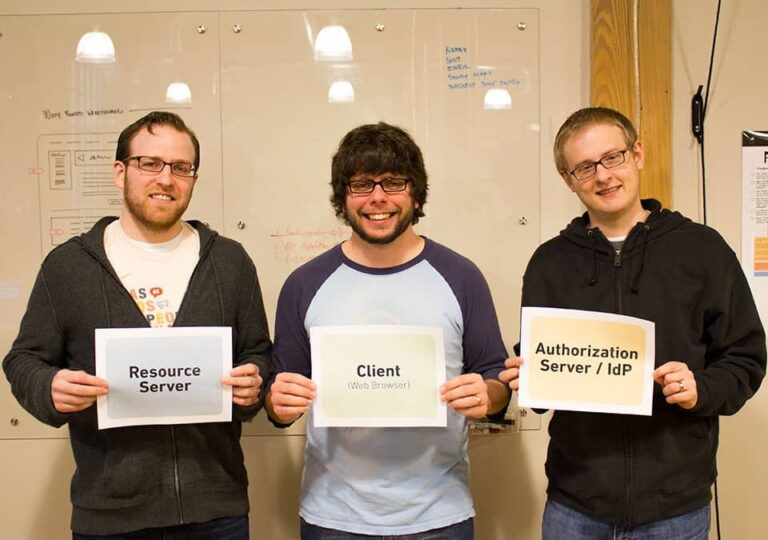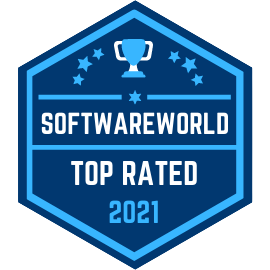So you want to introduce Robotic Process Automation (RPA) into your organization but don’t know where to start? The good news is, now more than ever before organizations have the tools to empower technical and non-technical employees alike to create automations and drive adoption and ROI across the business. Scaling the implementation of your RPA program towards this citizen developer model has tons of benefits. At its core, the technology improves productivity and employee morale ultimately resulting in exceptional customer experiences. It also helps optimize existing processes and scale automations, ultimately driving company revenue. Another benefit? the speed and accuracy with which our robot friends can execute those repetitive, mundane business processes. Implementing this model successfully, however, has its challenges and successfully doing so starts by establishing a team as your global center of excellence (CoE). Consider a CoE your automation HQ. From there, gaining trust in the technology, training up your team, building automation backlogs, regional bot development, and support and maintenance help drive the adoption and value of automation across the organization.
CoE as a foundation for success
A global CoE provides the framework for effectively implementing RPA into the organization. It is focused on providing standards, training, processes, best practices and resources for the automation team. The first step to an effective CoE model is to put together your core RPA team. This includes roles like:
- RPA Sponsor – Establishes RPA as an organization-wide digital transformation initiative
- RPA Champions – Evangelize automation adoption across business lines
- RPA Business analysts – Process Subject Matter Experts for business processes
- RPA Developers – Design, develop, test and push robust automations into production
It’s likely your initial CoE team members will wear multiple hats from the roles above. A strong organizational core ensures that RPA is structurally implemented across the company. Next comes the governance model. How policies and procedures are established, along with detailed escalation paths, consulting IT and info sec teams, etc! Streamlining the end-to-end Bot Development Lifecycle is critical in the successful implementation of RPA. Evaluating opportunities, ensuring feasibility, auditing bot deployments and scaling a support structure ensures seamless delivery of your bots. Remember, the aim of successfully standing up your CoE is to build a foundation for your organizational automation endeavors. It ensures that there is structure, and that there are processes and guidelines in place that will help build trust and scale the value of RPA across your business units.
How will automation affect my people?
Of course, with seamless delivery and successful implementation of RPA bots comes the human side of the equation. With a focus on people and culture, analyzing the effect of RPA on human roles and changing job descriptions means effectively communicating the role digital transformation plays on the day-to-day activities of your employees. Your CoE Change Manager will be critical in relaying the communication plan when it comes to changes introduced to business roles due to automation. This transition plan is key in ensuring each stakeholder is well informed and comfortable with the changes taking place. Automation can intimidate many workers into thinking their jobs will be taken over by robots, but the Change Manager’s job is to help those same people understand that by freeing up their time from doing the boring work over and over again they can find more value by doing work humans are better at, like providing exceptional customer service and coming up with creative solutions to industry challenges.
Scale, scale, scale!
Now that the human challenges have been addressed, centralized governance team is in place and initial functions are set up, the organization is ready to push the go button and launch the CoE. With a centralized approach to process discovery, development, deployment, etc, it’s time to enable your CoE RPA Champion to go fishing for automation opportunities within the organization where automation has not yet been implemented. The aim here is for the CoE RPA Champion to find and train other RPA Champions within various units and start working with them to help discover processes where automation can bring some value. Why scale?
- Drive further ROI
- Build bot factories across business lines
- Create a culture of automation
- Make digital transformation a priority
- Do more with less
The goal here is for the organization as a whole to be thinking about ways automation will add value. From HR, to finance, to IT, if your business leaders can start peering into their verticals from an automation lens, you will have successfully created a culture of automation. But is it really that simple?
“Nothing worth having comes easy” -Teddy Roosevelt
There are certainly some challenges at play in building out a successful CoE. What are some ways to help keep things on track? First and foremost, the CoE has to be aligned with the organization’s vision for digital transformation. Also, there needs to be a sufficient level of technical expertise. As process automation becomes a go-to solution for completing tasks, the business will face medium to high level automation challenges. Approaching these challenges with custom coding solutions or tips learned from an advanced certification with your RPA tool of choice will help drive the success of those bots. Next, what does success actually look like? There needs to be a clear cut definition of success. Is money saved the most important takeaway? Time saved? How do you measure customer experience? These are some questions to ask while setting up the CoE.
The Bottom Line
When it comes to scaling RPA across your organization, it’s clear that the CoE needs to be a priority. A foundation for your automation efforts not only helps implement RPA efficiently, but also builds a base for future digital transformation, like implementing machine learning and AI solutions. Despite the challenges of forming one, a CoE is critical in accelerating a culture of automation across your organization. As more lines of business become familiar with the benefits of RPA, employees at all levels can become RPA champions and start building their own automatons. Over time, as RPA tools become more friendly for non-technical users and business users gain some technical experience, automation will become a go-to solution for process execution across the enterprise. If you truly want to shape the future of work within your organization, start up your CoE, find an RPA champion (or become one yourself) and get to work!








